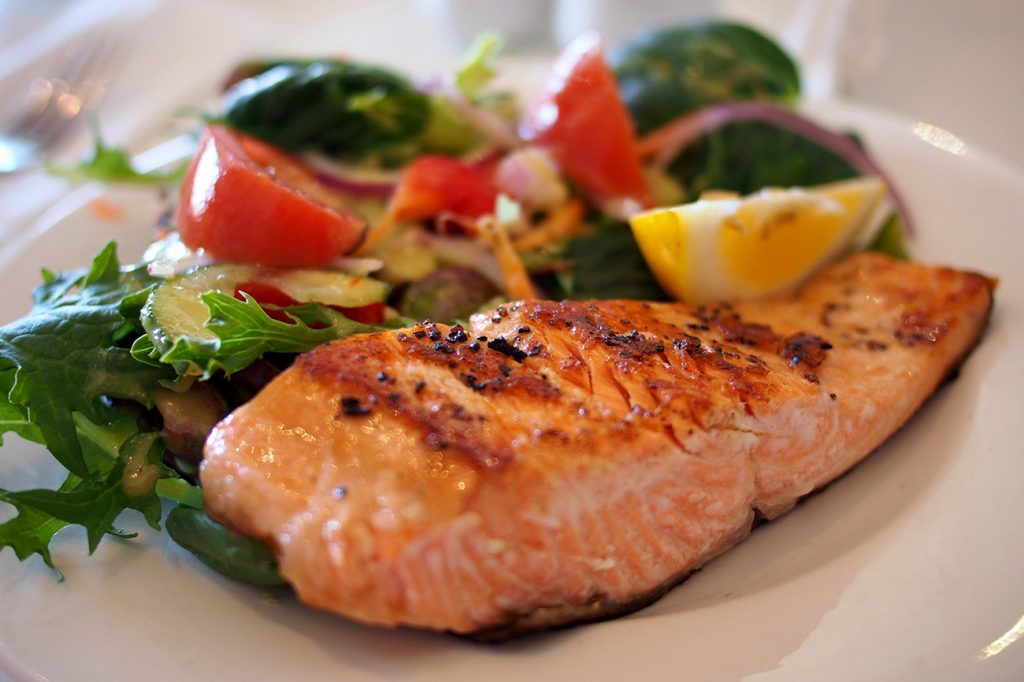For many years now we’ve been virtually brainwashed by messages about the dangers of fat in our diet. As a result we have pretty much developed a phobia of dietary fat, which is why low-fat foods have found such popularity over recent decades.
Traditionally, dietary fat has been associated with obesity, heart disease, high cholesterol, clogged arteries, and even cancer.
The fact of the matter is however, that there are good dietary fats and there are bad dietary fats.
Our body actually needs good fats to function properly and maintain good health.
That being the case, cutting too much fat out of your diet is actually quite harmful to both your health and to your weight loss results. Omega-3 and Omega-6 Essential Fatty Acids, for example, are vital for good health and several key functions in your body.
The secret to eating dietary fat is really quite simple, in fact there are just three basic rules to follow.
- Firstly, avoid bad fats (trans fats) as much as possible, since these are responsible for the classic health issues I outlined above.
- Secondly, consume saturated fats in moderation. These were once also believed to be responsible for various serious health issues, but evidence has emerged of late and continues to emerge that they are perhaps not quite as unhealthy as once thought. Nevertheless, it’s prudent to limit your intake of these fats to moderate levels.
- And thirdly, make sure you’re getting enough good fats (monounsaturated and polyunsaturated fats) in your diet.
One key point to bear in mind about fats however, is that both good fats and bad fats are very calorie-dense. They provide you with more than double the amount of calories that an equal amount of proteins or carbohydrates do.
That means that if you over-eat fats, you’ll do more damage to your waistline more quickly. But that’s no reason to avoid them altogether, or to consume less fat in your diet than is recommended.
Generally speaking, around about 20% of your daily calorie intake should come from healthy fats.
Sometimes even more than this is OK. In fact, some nutritionists actually recommend up to 30%.
So then let’s take a look then at 5 reasons why cutting your dietary fat intake is not necessarily a good thing.
1. Fats Increase Your Body’s Ability to Burn Body Fat
I know it sounds counterintuitive – eat more fat to burn more fat – but it’s true.
The fact is that body fat doesn’t necessarily come from dietary fat. It can come from anything that has calories – yep, even protein. In the Western diet the majority of our body fat, however, tends to come from sweets and other unhealthy carbs.
Essential Fatty Acids, like other important nutrients such as vitamins, minerals and amino acids, are essential for maintaining good health and an efficient metabolism. They act very much like hormones that increase fat burning in your body and decrease fat production.
2. Fats Boost Your Energy Levels
Healthy fats decrease the level of bad cholesterol (LDL) in your blood, and Essential Fatty Acids make your red blood cells more flexible.
These benefits mean that your blood cells can navigate their way through small blood vessels more easily, so that the tissues and cells in your body are able to receive nutrients and oxygen much more effectively.
This increases your energy and stamina. According to a study done in Denmark with female athletes, an increase in energy and stamina was noticeable within just one week.
3. Fats Speed up Your Recovery From Exercise
As I mentioned in the previous two points, Essential Fatty Acids help increase your body’s metabolism and improve your oxygen metabolism.
Anything that improves your body’s ability to use oxygen will provide you with more endurance and resistance to fatigue. This means you’ll take longer to get tired, you’ll feel less sore after exercise, and you’ll recover from exercise quicker.
Athletes that take Essential Fatty Acids also notice that they experience more rapid healing of bruises, sprains, ligament strain, and other pains.
4. Fats Promote Mental Wellbeing
Numerous tests have attributed positive benefits in the treatment and prevention of depression to Omega-3 Essential Fatty Acids.
Research has shown that countries with higher fish consumption rates per capita tend to have significantly lower rates of serious depression. A study in Finland found that people who ate fish less than once a week had a 31% higher chance of mild to severe depression than people who ate fish more often.
5. Fats are Nourishing to Your Skin
Essential Fatty Acids form a barrier in your skin that protects it against moisture loss. This helps prevent dehydration and problems such as eczema, inflammation and breakouts. They also make your skin soft and velvety, and your hair shiny and soft.
Winter is a time that many people typically experience dry skin. This symptom indicates a need for more Essential Fatty Acids in the diet.
NOTE: Information for this article was taken from http://www.udoerasmus.com/



2 Comments
I would just like to give a huge thumbs up for the superb information you have here on this post!
Nice post, this will help me a lot,thanks.